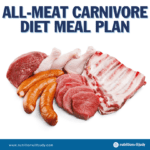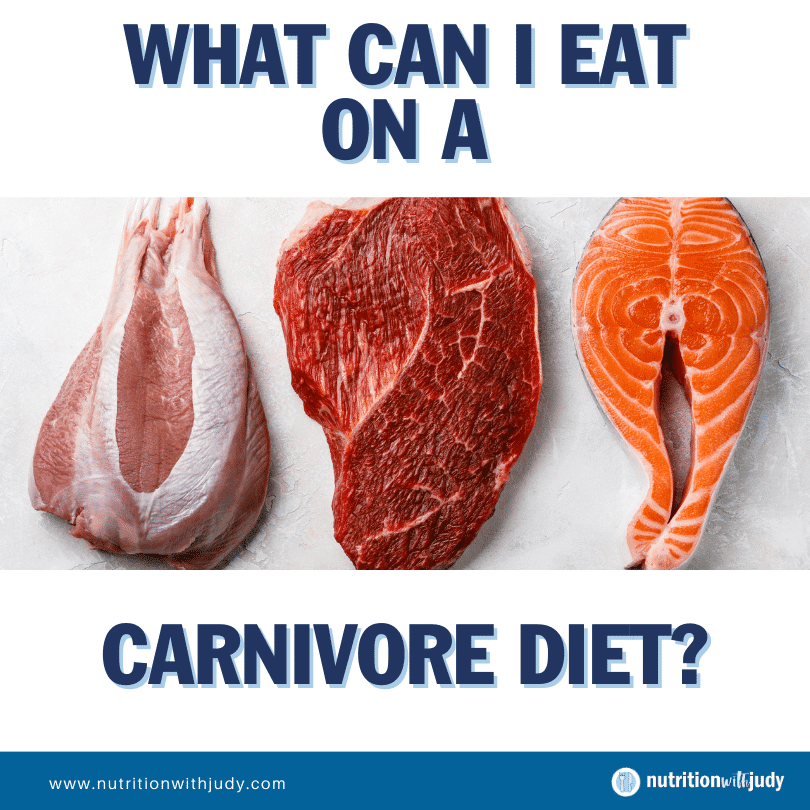

What Can I Eat On a Carnivore Diet?


Embarking on the carnivore diet can be an enlightening path to wellness, offering a plethora of variations tailored to individual health goals and backgrounds. This diet, at its core, champions the consumption of nutrient-rich, highly bioavailable meats. It’s essential to recognize, however, that the carnivore diet is not a rigid, one-size-fits-all regimen. Instead, it allows for personalization and adaptation, catering to each individual’s unique dietary needs and health objectives.
For some, the diet may be as straightforward as consuming meat, water, and a hint of salt. Yet, for others, it might require a more nuanced approach, incorporating different types of meats and varying levels of fat and protein intake. This flexibility is particularly beneficial for individuals managing specific health conditions, such as type 2 diabetes or depression, as it allows them to adjust their diet in a way that supports their health goals.
Moreover, the carnivore diet isn’t necessarily a lifelong commitment. It can be approached as an elimination diet, ideal for identifying food sensitivities and healing long-term health issues. Once health goals are achieved, some may choose to reintroduce other foods while others may enjoy continued success with a meat-based approach.
Ultimately, the key takeaway is that the carnivore diet offers a spectrum of options, enabling individuals to explore and find the dietary balance that works best for them. It’s a journey of discovery, where each person can experiment and adjust their diet according to their health needs and lifestyle preferences. Let’s take a closer look at what you can eat based on which carnivore diet variation you decide.
What Is the Carnivore Diet?
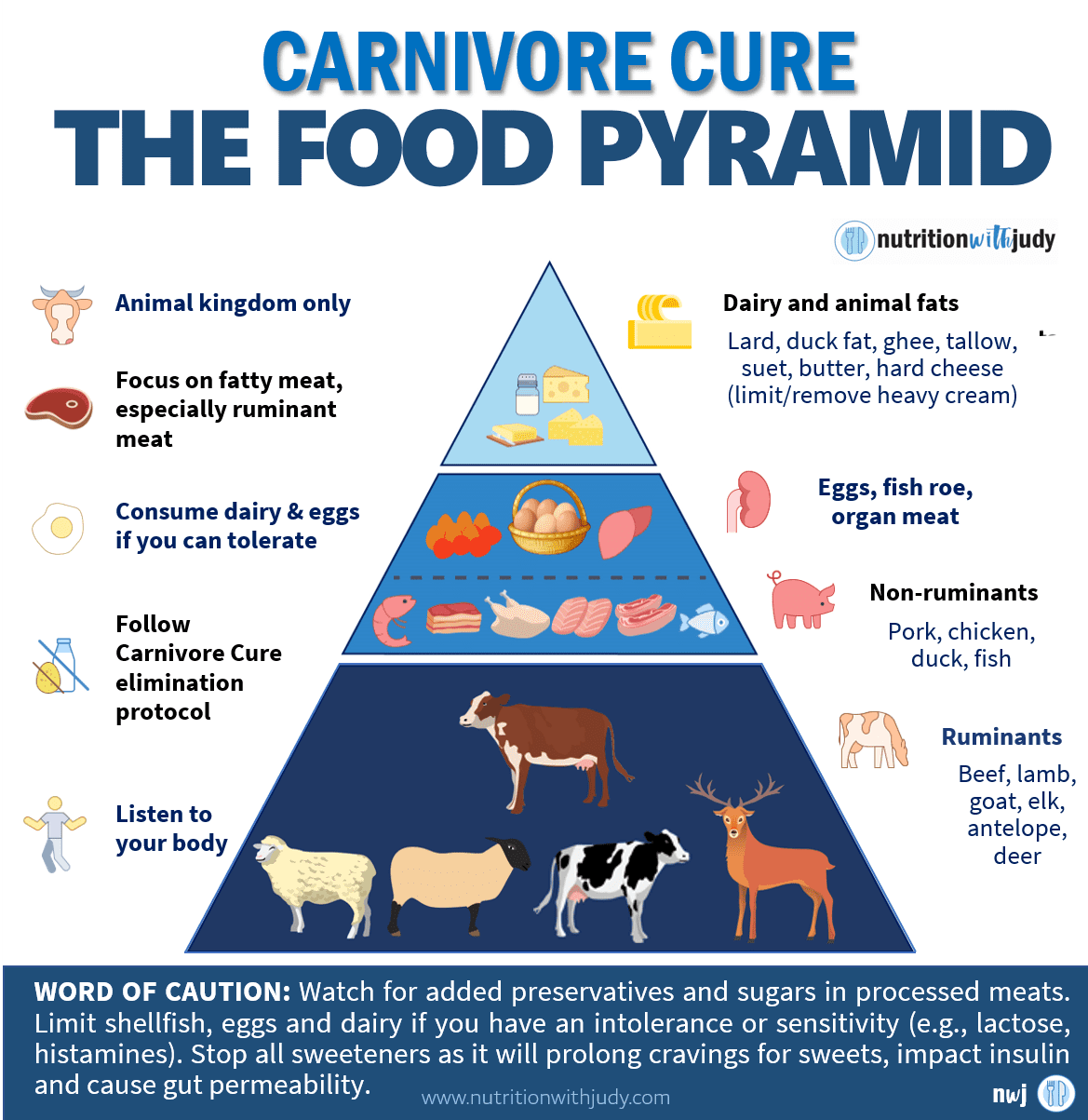

The carnivore diet, a unique approach to nutrition, focuses on consuming only animal-based foods. It’s an elimination diet that excludes plant-based foods, including fruits and vegetables, targeting the root cause of various health issues. This diet is particularly effective for individuals dealing with metabolic diseases, autoimmune disorders, and thyroid and hormonal imbalances.
By eliminating potential dietary triggers found in plant foods, the carnivore diet provides a way to address and potentially alleviate these health concerns. It’s a radical shift from traditional diets, emphasizing the healing powers of a meat-centric dietary approach, and has been a life-changing experience for many who have struggled with chronic health issues.
What Are the Benefits of the Carnivore Diet?
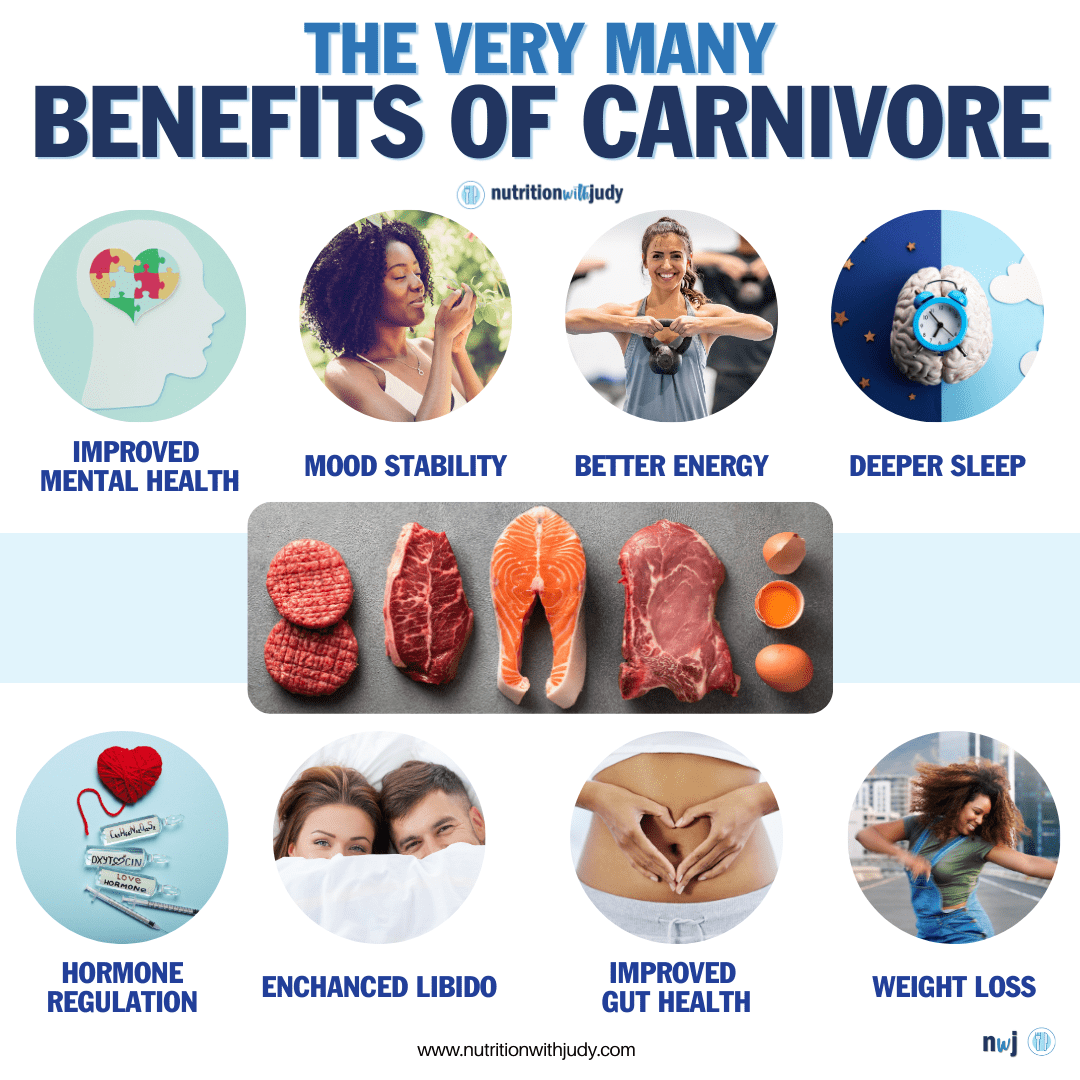

The carnivore diet, centered around consuming animal-based foods, offers a myriad of benefits that cater to diverse health needs. This comprehensive summary outlines the key reasons individuals may choose to adopt this way of eating:
- Mental Health Benefits: Numerous individuals have reported significant improvements in mental health conditions such as depression and anxiety after adopting the carnivore diet. This diet has helped some to overcome long-term struggles with mental illness, offering a new lease on life without the need for medication.
- Addressing Autoimmune and Metabolic Diseases: The carnivore diet has shown promise in helping individuals manage and even reverse symptoms of autoimmune disorders and metabolic diseases such as type 2 diabetes and high blood pressure. By focusing on meat, a nutrient-dense and bioavailable food source, it helps in healing diseases that have been part of the body for extended periods.
- Healing Gut Issues: For those with gut-related problems, the carnivore diet can be a game-changer. Its elimination approach removes potential irritants found in plant-based foods, allowing the gut to heal and restore balance.
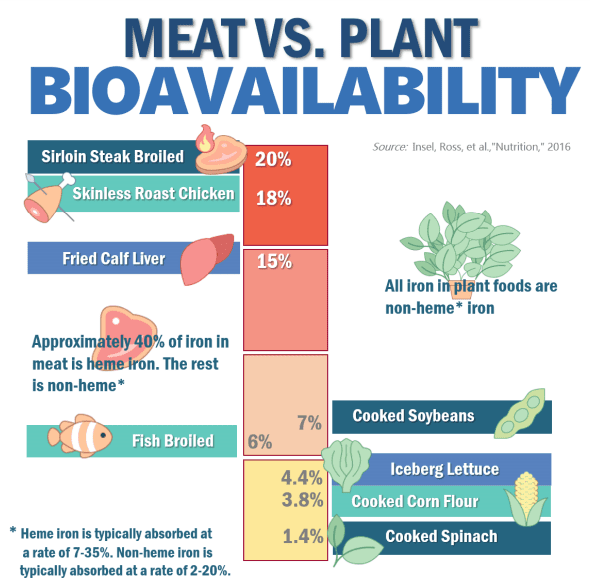

- Nutrient Density and Bioavailability: Animal-based foods are incredibly nutrient-dense and offer high bioavailability. This means the body can more easily absorb and utilize the nutrients present in these foods, contributing to overall health and well-being.
- Flexibility and Personalization: One of the standout features of the carnivore diet is its adaptability. Individuals can tailor the diet to their specific health goals and requirements, making it a versatile option for a wide range of health concerns.
- Weight Management: Many have found the carnivore diet effective in managing weight. It helps in regulating appetite and can lead to natural weight loss. However, it’s important to note that weight changes can vary based on individual body responses and dietary adjustments.
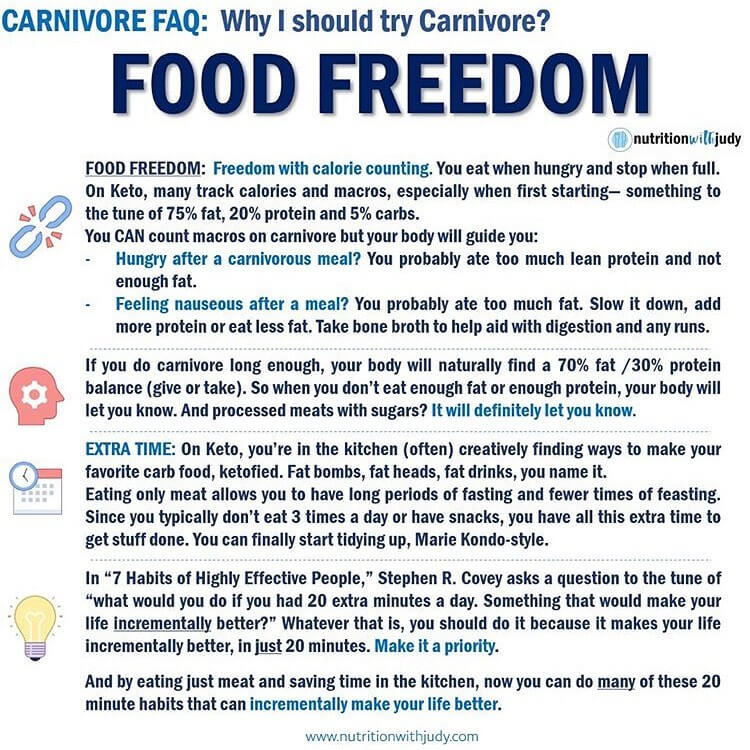

- Reduced Food Cravings and Improved Relationship with Food: The diet can significantly reduce food cravings and help in establishing a healthier relationship with food. By simplifying dietary choices and removing common triggers such as sugar and processed foods, individuals often experience a newfound freedom from food-related stress and cravings.
- Athletic Performance and Recovery: Active individuals and athletes may benefit from the high protein and fat content of the carnivore diet, which can aid in muscle recovery and sustained energy levels.
- Identification of Food Sensitivities: As an elimination diet, the carnivore diet can be instrumental in identifying food sensitivities. By removing potential allergens and reintroducing them gradually, individuals can pinpoint specific foods that cause adverse reactions.
- Nutritional Education and Advocacy: The carnivore diet encourages individuals to become advocates for their own health, promoting a deeper understanding of nutritional needs and how different foods impact the body.
The carnivore diet offers a unique approach to nutrition, providing benefits ranging from mental health improvements to gut healing and metabolic regulation. Its adaptability and focus on nutrient-dense, bioavailable foods make it a compelling option for those seeking a personalized and effective dietary strategy.
Who Should Try the Carnivore Diet?
The carnivore diet, a meat-focused elimination approach, can be suitable for a wide range of individuals, each with unique health needs and goals. This diet is particularly beneficial for those dealing with chronic conditions such as type 2 diabetes, metabolic dysfunction, autoimmune disorders, gut issues, and mental health imbalances. Its high nutrient density and bioavailability make it an ideal choice for healing longstanding health issues.
Moreover, the carnivore diet is not a rigid prescription but rather a flexible template that can be adapted to meet individual needs. Whether one is an active athlete requiring high protein and fat for performance and recovery, someone struggling with food addictions, or someone with mineral imbalances, the diet can be adjusted accordingly. For example, the proportions of fat to protein, the types of meat consumed (e.g., ruminant vs. non-ruminant), and the inclusion or exclusion of dairy or eggs can all be tailored to individual requirements.
Additionally, the carnivore diet serves as an effective tool for identifying food sensitivities. Unlike traditional food sensitivity tests, which are unreliable, this elimination diet allows individuals to reintroduce foods systematically to pinpoint specific sensitivities. This makes it a valuable approach for anyone looking to understand and manage their unique dietary triggers.
The duration and intensity of adherence to the carnivore diet can also vary. Some may find it beneficial as a short-term intervention to address specific health issues, while others might adopt a meat-based diet as a long-term lifestyle choice, especially if they have battled chronic conditions such as diabetes for many years. The key is to listen to one’s body and make adjustments as needed, guided by personal health experiences and goals.
The carnivore diet is a versatile and customizable eating plan that can cater to a wide array of health needs. Its adaptability makes it suitable for virtually anyone, whether seeking short-term health improvements or long-term lifestyle changes.
The Different Carnivore Diet Variations
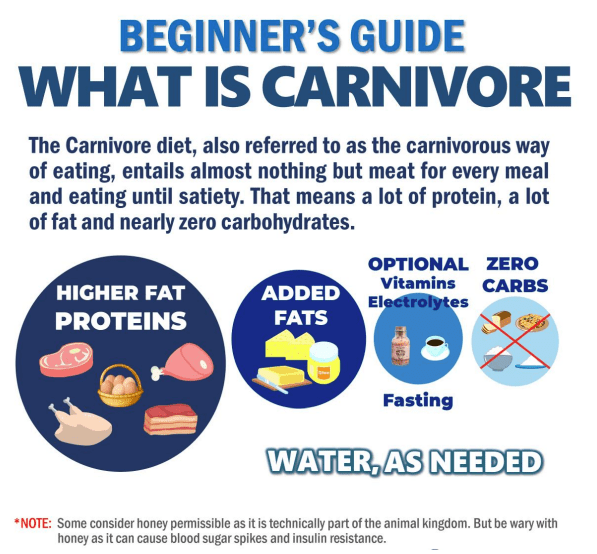

Embarking on the carnivore diet journey presents a world of variations, each with its unique guidelines on what to include or avoid in your meals. This diet isn’t a one-size-fits-all approach; rather, it offers a spectrum of options ranging from strict meat-only regimes to more inclusive approaches that may allow certain dairy or eggs. Tailoring a carnivore diet to your specific needs and preferences is key for long-term sustainability and achieving personal health goals. Whether you’re aiming for weight management, addressing health issues, or seeking overall wellness, personalizing your carnivore diet can make it a more enjoyable and effective lifestyle choice.
Beef-Only Carnivore Diet
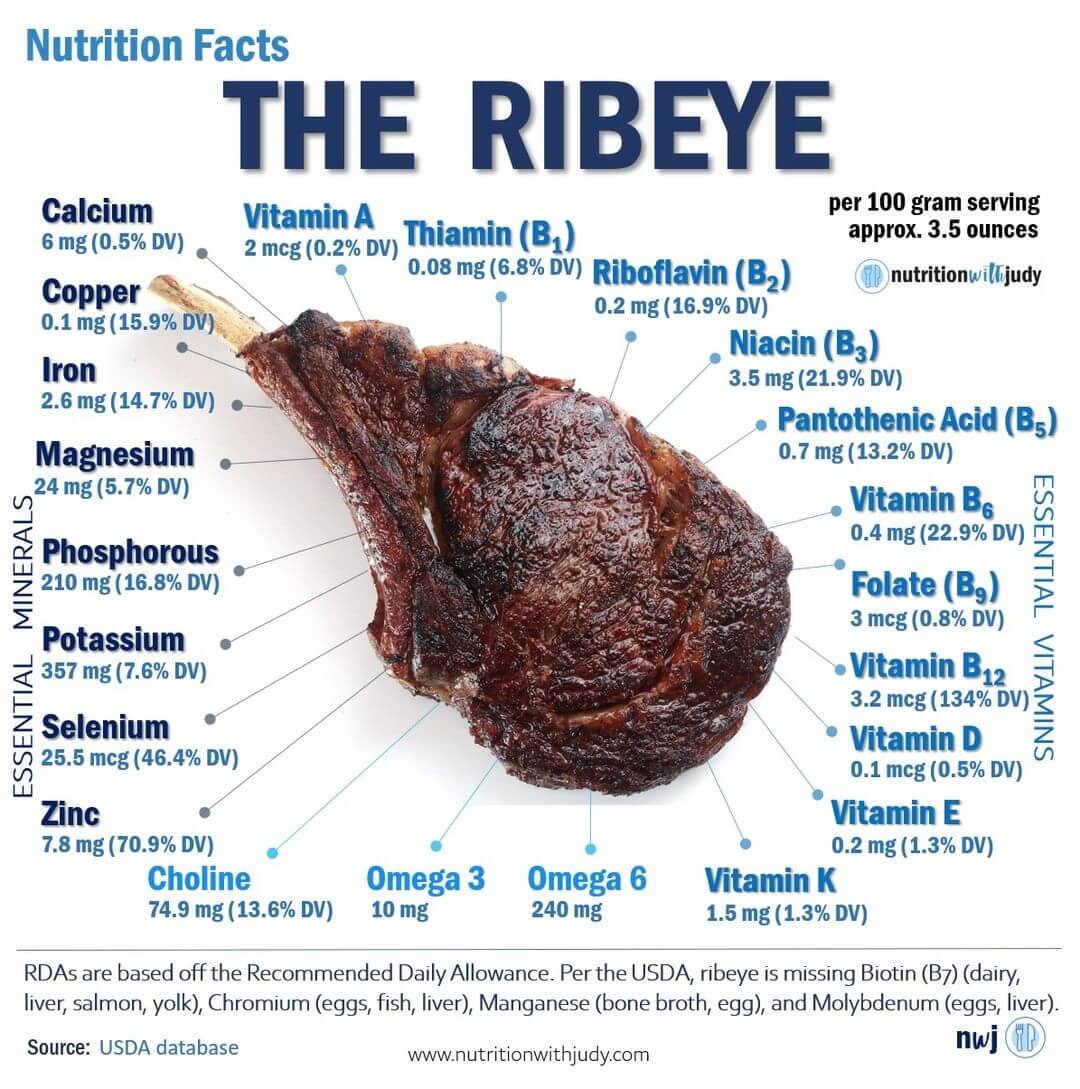

The beef-only carnivore diet is a specific variation of the carnivore diet that focuses exclusively on consuming beef, alongside water and, optionally, salt. This approach is particularly nutrient-dense, capitalizing on the bioavailability of meat. It can be an ideal choice for individuals looking to heal from long-standing diseases such as autoimmunity and various metabolic disease symptoms. The diet’s simplicity makes it a powerful tool for addressing these health issues.
However, it’s important to consider that this strict regimen may not be suitable for everyone in the long term. In such cases, adding other animal-based foods or treating root-cause conditions is crucial in order to expand your diet in the future.
The beef-only carnivore diet should be approached as a highly personalized eating plan. It can be an effective short-term intervention for healing and identifying food sensitivities but might require modifications for long-term sustainability and overall health optimization. Therefore, it’s recommended that individuals closely monitor their health responses and make necessary dietary adjustments to ensure they are meeting their specific health goals.
The Lion Diet
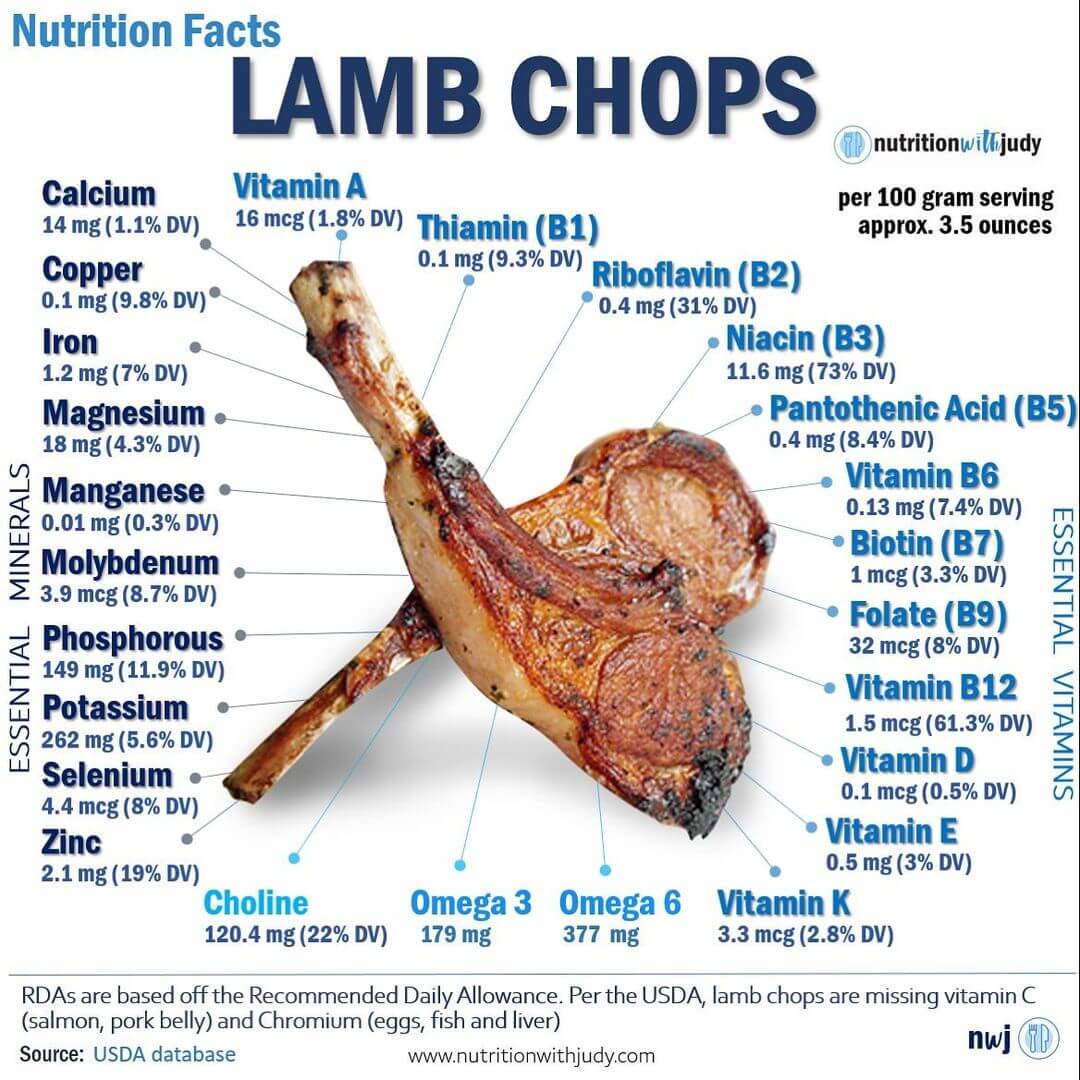

The lion diet is a more restrictive version of the carnivore diet, which typically includes only ruminant meat (beef, lamb, goat, bison, elk, sheep, and more), salt, and water. This diet is designed to be extremely simple and minimalistic, reducing variables that might affect an individual’s health. It’s particularly beneficial for those with severe autoimmune disorders, food sensitivities, and digestive issues. By limiting food intake to these specific items, the lion diet aims to reduce inflammation, eliminate potential food triggers, and promote gut healing.
This diet variation can be especially useful for individuals who have not found relief from symptoms with other dietary approaches. For those struggling with complex health issues, such as hormonal imbalances or environmental illness, the lion diet provides a way to reset the body and identify potential food-related causes of their problems. The focus on ruminant meats ensures a high intake of nutrient-dense foods, which can support healing and recovery.
However, it’s important to consider that this diet may not be sustainable or necessary for everyone in the long term. Continuous monitoring and adjustments may be required to ensure that nutritional needs are being met. For individuals dealing with specific and persistent health challenges, who have tried other dietary interventions without success, the lion diet could offer a new avenue for healing and symptom management.
The Nose-to-Tail Carnivore Diet
The nose-to-tail carnivore diet is a holistic approach within the carnivore lifestyle, emphasizing the consumption of all parts of the animal. This method includes muscle meats, organ meats such as liver and heart, and even bones. The philosophy behind this diet is to maximize nutrient intake by utilizing the entire animal, thereby ensuring a balance of vitamins, minerals, and other essential nutrients.
One significant benefit of the nose-to-tail approach is the diverse nutrient profile it offers. Organ meats, for instance, are packed with vitamins and minerals that might be less abundant in muscle meats. This approach can be particularly beneficial for individuals with specific nutrient deficiencies or support specific health conditions. However, there’s a lot of nuance when it comes to ingesting organ meats. Overconsumption of liver and kidney increases the risk of vitamin A toxicity. We always recommend eating organs in proportion to the animal. Always work with your trusted carnivore diet practitioner to discover if you should include organs in your diet.
Adopting a nose-to-tail carnivore diet isn’t necessary for healing. Many people heal and thrive without incorporating organs into their carnivore diets. It’s important to base this decision on your personal taste preferences, health goals, and medical history.
All-Meat Carnivore Diet
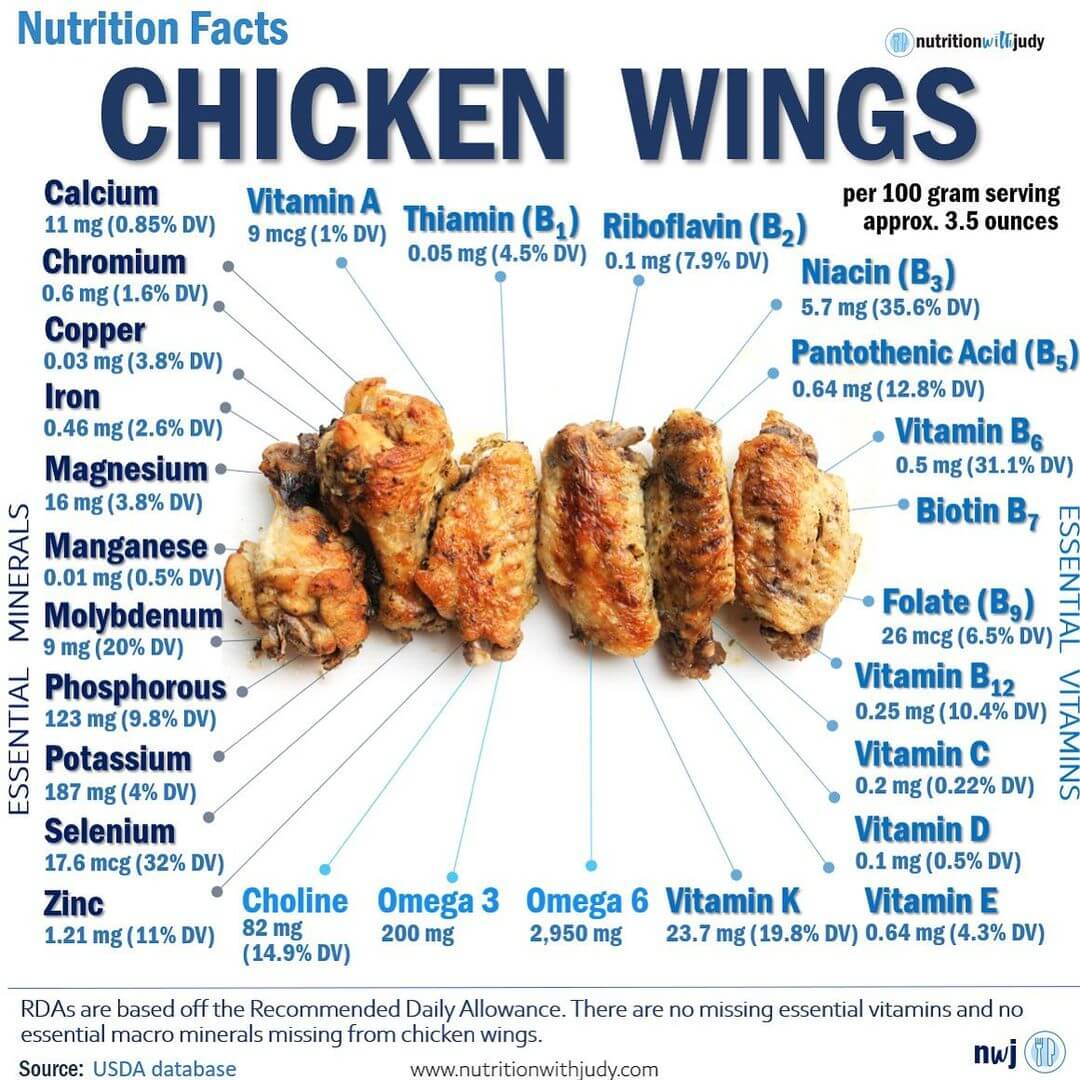

The all-meat carnivore diet is a streamlined version of the carnivore diet focusing solely on the consumption of muscle meats from various animals, excluding organ meats, eggs, and dairy. This diet variation centers on the primary consumption of meats such as beef, chicken, pork, and fish, providing a straightforward approach to the carnivore lifestyle.
This diet can be particularly appealing to individuals seeking simplicity in their eating habits, as it reduces the complexity of food choices. It is also an excellent starting point for those new to the carnivore diet, offering a clear and uncomplicated way to eliminate plant-based foods and focus solely on animal proteins.
Individuals with specific health issues such as type 2 diabetes, high blood pressure, and various metabolic diseases may find the all-meat diet beneficial. By concentrating on muscle meats, which are nutrient-dense and bioavailable, this diet can support the healing process of chronic diseases that have been present for years.
However, it’s essential for individuals to tailor their diet to their specific needs. It’s important to eat a rainbow of meats to minimize any nutrient deficiencies. Including fatty fish varieties a couple of times a week is also important for omega-3s. The all-meat carnivore diet can serve as an effective elimination diet, helping to identify food sensitivities and reactions while potentially aiding in the management and resolution of long-standing health issues.
The Zero-Carb Carnivore Diet
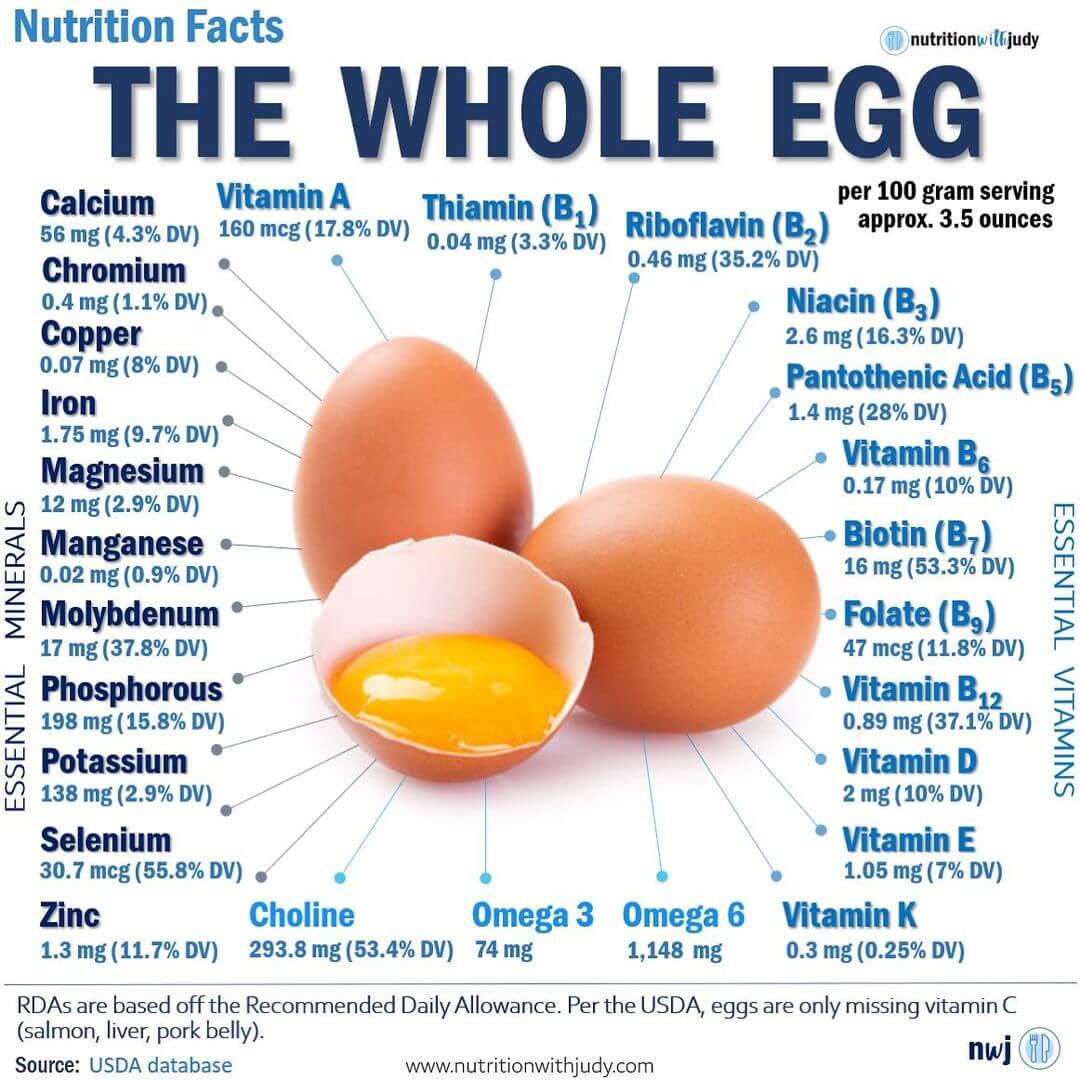

The zero-carb carnivore diet is a dietary approach that strictly focuses on consuming only muscle meat, dairy, and eggs. It differs from the nose-to-tail carnivore diet as it doesn’t include organs. While organs are often omitted or limited, anything from the animal kingdom can be eaten on this diet variation. While dairy and eggs do contain some carbs, this way of eating is technically nearly zero carbs.
This diet is particularly well-suited for individuals seeking better weight management, health optimization, and supporting milder conditions. By removing most carbohydrates, the diet helps stabilize blood sugar levels and reduce insulin spikes, which can be beneficial for those with insulin resistance or pre-diabetes. Additionally, the high protein and fat content of the diet can aid in satiety and weight management.
Individuals considering the zero-carb carnivore diet should approach it with a personalized strategy, taking into account their specific health needs and goals, and possibly consulting with their trusted healthcare professional to ensure it aligns with their overall health plan.
The Carnivore Keto Diet
The carnivore keto diet is a specialized version of the carnivore diet that places an emphasis on high fat intake while maintaining a strict animal-based food regime. This diet aligns with the principles of a ketogenic diet, which typically involves a high fat, moderate protein, and low carbohydrate intake, but in the context of the carnivore diet, the focus is solely on animal-based sources. In addition to everything from the animal kingdom, this diet variation also includes some lower-toxicity plant foods such as avocados, pickles, and so on.
This diet variation is ideal for individuals who have healed enough to tolerate some plant foods well and those who are metabolically healthy and don’t have any food addiction issues.
The Carnivore-ish Keto Diet
The carnivore-ish keto diet is a variation of the traditional carnivore diet that incorporates some principles of a ketogenic diet. This diet primarily focuses on animal-based foods but allows for a small inclusion of low-carbohydrate, ketogenic-friendly plant foods. These additions could include fermented vegetables or other low-carb plant foods that align with ketogenic principles.
This diet includes everything from the animal kingdom, low-toxicity and low-carb plant options, as well as some keto favorites such as sweetener alternatives, nut products, seasonings, and more. The carnivore-ish keto diet is particularly suitable for those who have healed, are metabolically flexible, and don’t have any food addiction issues.
The Animal-Based Diet
The animal-based diet, similar to the Ray Peat diet, includes meat, organ meat, raw dairy, eggs, honey, and fruit. We don’t recommend this diet variation as there can be some risks and we generally only see individuals who are metabolically healthy, very athletic, and don’t suffer from any sugar addiction issues do well with this type of diet.
Closing Thoughts On What You Can Eat On a Carnivore Diet
The carnivore diet, centered around animal-based foods, presents various adaptations to suit different health goals and preferences, enhancing its versatility and appeal. The traditional all-meat version focuses solely on muscle meats from various animals, ideal for simplicity and for those starting their carnivore journey. In contrast, the beef-only variant, emphasizing nutrient-dense beef, suits those managing specific health conditions such as diabetes or high blood pressure. The more restrictive lion diet, comprising only ruminant meats, salt, and water, targets severe autoimmune and digestive issues, simplifying dietary choices to the extreme.
For a holistic approach, the nose-to-tail diet includes all parts of the animal but requires nuance in order to determine if this is organs are safe for you. The zero-carb carnivore diet offers more variety with the inclusion of dairy and eggs. The carnivore keto diet combines high-fat, moderate-protein principles with carnivore foods, catering to individuals with specific dietary needs such as autoimmune diseases or gut issues.
The carnivore-ish keto diet allows for some low-carb plant foods, providing flexibility and variety, ideal for those who find stricter versions unsustainable. Lastly, the animal-based diet includes honey and fruit which isn’t recommended.
Each variation of the carnivore diet enhances the dietary spectrum, allowing individuals to tailor their eating plan to specific health goals, preferences, and lifestyle needs, ensuring both sustainability and effectiveness.
Work With Our Trusted Carnivore Diet Functional Nutritional Therapy Practitioners
The Nutrition with Judy practice is honored to be a trusted carnivore diet practitioner support serving clients from around the globe. We’re passionate about helping our clients achieve root-cause healing in order to lead the best quality of life possible that’s nearly symptom-free. Our team is dedicated to educating our community about the incredible benefits of the carnivore diet. We welcome you to explore our free resources and are always available to support you through personalized protocols. Our Symptom Burden Assessment (SBA) is the perfect starting point for discovering your root cause and is required to work with our team— you can learn more in-depth about this powerful tool here.
Start your root-cause healing journey today and contact us any time with any questions or concerns.
DISCLAIMER: This content is for educational purposes only. While we are board-certified in holistic nutrition and are nutritional therapy practitioners, we are not providing medical advice. Whenever you start a new diet or protocol, always consult with your trusted practitioner first.




